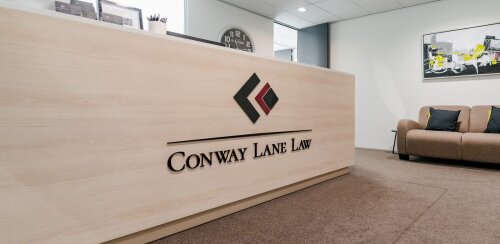Best Child Abuse Lawyers in Rangiora
Share your needs with us, get contacted by law firms.
Free. Takes 2 min.
Free Guide to Hiring a Family Lawyer
List of the best lawyers in Rangiora, New Zealand
About Child Abuse Law in Rangiora, New Zealand
Child protection and abuse laws in New Zealand apply nationwide, including Rangiora in the Canterbury region. The framework covers physical, sexual, emotional abuse and neglect of children and young persons. Agencies such as Oranga Tamariki and the New Zealand Police work together with the courts to safeguard children and determine appropriate care or protective orders.
The best interests of the child are the paramount consideration in decisions under the Children, Young Persons, and Their Families Act 1989.
In Rangiora, local families may interact with Canterbury District Courts, Oranga Tamariki, and police services as part of child protection processes. A solicitor or legal counsel with experience in family and child protection matters can help families navigate investigations, court hearings, and orders that affect parenting, contact, or safety.
Legal advice is essential if you or your child face allegations, investigations, or court proceedings. A qualified solicitor in Rangiora can explain the process, help gather evidence, and advocate for the child’s best interests in both interim and final orders.
For official information on how child protection works in New Zealand, you can consult government resources from Oranga Tamariki and the Courts, which provide guidance on procedures, safety planning, and appeals.
Government information about child protection and family law is available from official NZ sources, including the Ministry for Children and the judiciary.
Why You May Need a Lawyer
Legal guidance is crucial when child protection concerns arise in Rangiora. A solicitor can help you understand your rights, obligations, and the best path forward under Canterbury-based processes.
- A parent or caregiver faces an Oranga Tamariki intervention or a child protection investigation in Rangiora, and you need to understand your options and timelines. An attorney can explain the steps, collect documentation, and communicate with agencies on your behalf.
- There is a clash over parenting arrangements after separation, including custody or contact with a child who is at risk. A family law solicitor can negotiate orders and present evidence to protect the child’s safety and your parental rights.
- A police investigation or criminal charges involving a child arise, such as alleged assault or sexual offences. A solicitor can safeguard your constitutional rights, advise on bail, and prepare a defence strategy.
- A protective or safety order is sought for or against you, including interim or permanent orders in the Family Court. A lawyer helps you prepare applications, respond to petitions, and present arguments at hearings.
- You need to appeal or seek variation of a protection or care order. A Canterbury-based lawyer can guide you through the appellate or variation process in the local court circuit.
- You are a professional or caregiver required to report concerns or face compliance considerations. A solicitor can clarify reporting obligations, potential liability, and best practice safeguards.
In each scenario, engaging a New Zealand solicitor who specializes in child protection and family law improves your ability to navigate complex procedures in Rangiora and Canterbury courts. You can reference government guidance on how cases proceed in the local jurisdiction.
Key sources: The Courts of New Zealand provide information on family and protection matters, while Oranga Tamariki outlines child protection duties and interventions. See official sites for up-to-date practice directions and procedures.
Local Laws Overview
New Zealand has foundational statutes that govern child protection, offences against children, and family care. The three principal Acts below establish the framework for handling abuse, safeguarding children, and deciding parenting arrangements in Rangiora and the wider Canterbury region.
- Crimes Act 1961 - The core criminal law statute that covers offences against children, including assault, sexual offences, and exploitation. NZ law uses this Act to prosecute individuals who harm or exploit young people. (legislation.govt.nz)
- Care of Children Act 2004 - Governs parenting orders, guardianship, access, and contact after separation to ensure the child’s safety and welfare. It provides mechanisms for obtaining or modifying orders in family courts. (legislation.govt.nz)
- Children, Young Persons, and Their Families Act 1989 - Establishes the framework for child protection referrals, investigations, and welfare interventions. The Act emphasises the best interests of the child in decision making. (legislation.govt.nz)
These Acts interact with agency practices in Rangiora, including police investigations and Oranga Tamariki interventions. For the latest official text and amendments, consult the NZ Legislation website and the Canterbury District Courts guidance.
Recent trends and guidance indicate a growing emphasis on early intervention, multi-agency collaboration, and child-centric outcomes. Official guidance from Oranga Tamariki and the Courts outlines procedures for safeguarding, reporting, and court processes that Canterbury families may encounter.
Frequently Asked Questions
What is child abuse under New Zealand law?
Child abuse includes physical, sexual, emotional harm and neglect of a child or young person. The Crimes Act 1961 and CYPF-related statutes provide the framework for responding to and prosecuting such conduct.
How do I know if I should hire a lawyer for a child protection matter?
Hire a solicitor when a protection or care order is possible, a police investigation begins, or there is a risk of losing contact with your child. A lawyer can protect your rights and plan a strategy.
What is the role of a solicitor in a Rangiora child protection case?
The solicitor explains options, represents you in hearings, drafts submissions, and negotiates with agencies. They help gather evidence and protect the child’s best interests.
How long do Canterbury child protection or family court cases typically take?
Timelines vary by case complexity. Family court matters often extend over months, and interim orders can be issued within days to weeks if safety concerns are urgent.
Do I need a lawyer if Oranga Tamariki is involved?
Yes. A lawyer can ensure your rights are protected during assessments, interventions, and potential court hearings. They can help you navigate communications with Oranga Tamariki.
What is the difference between a protection order and a care order?
A protection order focuses on safety and wellbeing for a child in immediate risk, while a care order involves longer-term arrangements for guardianship and parenting oversight.
Can I represent myself in Child Protection or Family Court matters?
While you can represent yourself, it is risky. A solicitor with family law experience reduces errors and improves the likelihood of a fair outcome for the child.
How much does it cost to hire a child abuse lawyer in Rangiora?
Costs vary with case complexity. Expect consultation fees, court appearances, and potential fixed or hourly rates. Legal aid may be available in certain circumstances.
Where can I find free or low-cost legal help in Rangiora?
Legal Aid New Zealand and local community legal services offer options for low-cost or subsidised representation. A solicitor can assess eligibility and guide you to appropriate services.
Is there a specific process to report child abuse in Rangiora?
Yes. Suspected abuse should be reported to the NZ Police or Oranga Tamariki. Early reporting can trigger timely protective action for the child.
What factors influence the best interests of the child?
The child’s safety, health, development, ties to family, and views, depending on age and capacity, guide decisions under NZ family and protection law.
Do I need to gather medical or school records for a child protection case?
Yes. Documentation like medical records, school reports, and letters from caregivers help establish the child’s welfare and safety needs in court.
Additional Resources
- Oranga Tamariki - Ministry for Children - The government agency responsible for protecting children and supporting families. They undertake investigations and provide safety planning and services. orangatamariki.govt.nz
- Courts of New Zealand - Official information about Family Court, protection orders, and hearing processes. They provide guidance on how cases are heard and decisions made. courts.govt.nz
- New Zealand Police - Responsible for responding to suspected child abuse and safeguarding children through immediate actions and investigations. police.govt.nz
Next Steps
- Identify the issue and gather key information such as dates, witnesses, and any communications with Oranga Tamariki or the police. Do this within 1 week of learning about the matter.
- Schedule an initial consultation with a Canterbury-based solicitor who specializes in child protection or family law. Aim for a first meeting within 2 weeks.
- Check eligibility for legal aid or community legal services. Apply within 2-3 weeks if you think you qualify, and bring financial documents to the appointment.
- Decide on representation options and prepare a case plan with your solicitor. Establish a timeline for hearings, responses, and any required documents within 2-4 weeks.
- Prepare and organize evidence, including records, correspondence, and expert reports. Complete this step before any scheduled hearing or intervention in court.
- Attend meetings with agencies and attend court as required. Your lawyer will coordinate schedules and advise on expected timelines for Canterbury processes.
- Review outcomes with your solicitor and plan any appeals or modifications if necessary. Set follow-up steps and monitoring arrangements with agencies.
Lawzana helps you find the best lawyers and law firms in Rangiora through a curated and pre-screened list of qualified legal professionals. Our platform offers rankings and detailed profiles of attorneys and law firms, allowing you to compare based on practice areas, including Child Abuse, experience, and client feedback.
Each profile includes a description of the firm's areas of practice, client reviews, team members and partners, year of establishment, spoken languages, office locations, contact information, social media presence, and any published articles or resources. Most firms on our platform speak English and are experienced in both local and international legal matters.
Get a quote from top-rated law firms in Rangiora, New Zealand — quickly, securely, and without unnecessary hassle.
Disclaimer:
The information provided on this page is for general informational purposes only and does not constitute legal advice. While we strive to ensure the accuracy and relevance of the content, legal information may change over time, and interpretations of the law can vary. You should always consult with a qualified legal professional for advice specific to your situation.
We disclaim all liability for actions taken or not taken based on the content of this page. If you believe any information is incorrect or outdated, please contact us, and we will review and update it where appropriate.









